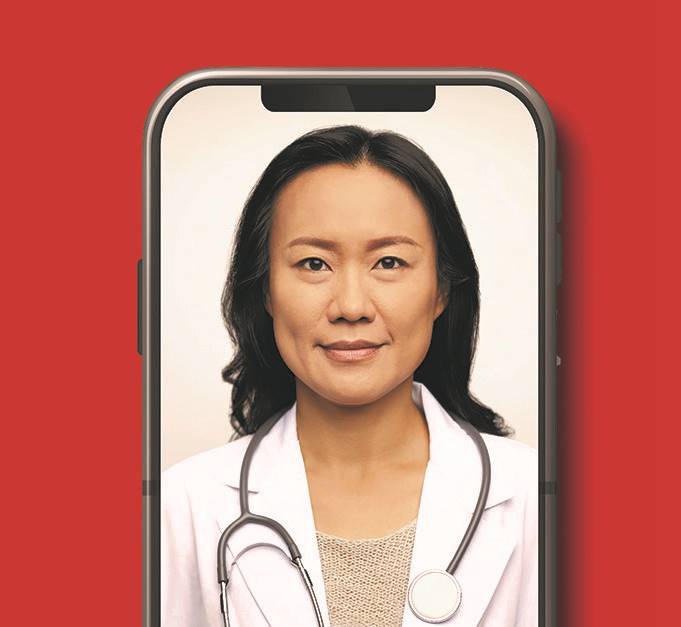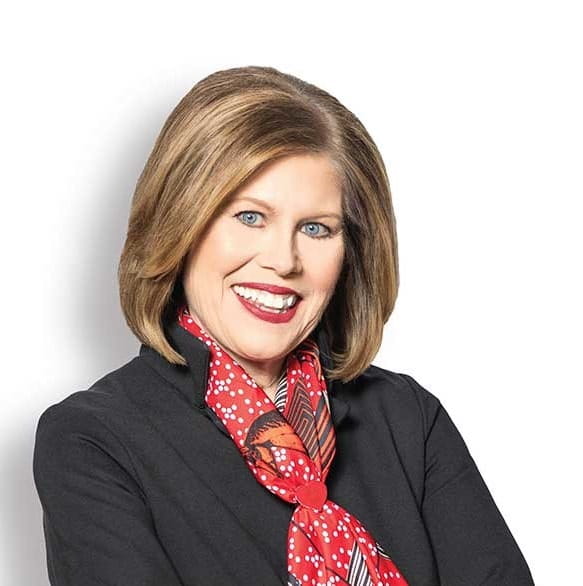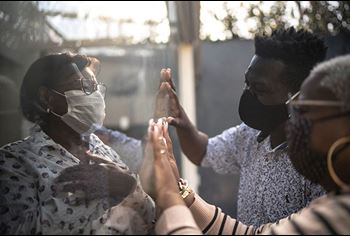Reclaim your Rhythm
Our Way. Mind. Body. Spirit.

Reclaim Your Rhythm
The American Heart Association is encouraging Black women to Reclaim Your Rhythm and take control of their mental and physical well-being. Like taking a familiar song and adding, removing or changing pieces of it, Black women have been empowered with greater knowledge and determination to heal and protect their physical and mental health and wellbeing.
In recognition of the physical and emotional toll the global pandemic and structural racism has taken on Black women, AHA will help empower Black women to bring to light their overall mental and physical well-being by using and uplifting their voices and sounds. Reclaim Your Rhythm will also use music to get their hearts pumping, or to rest or relax.
Music means so many things to different people across the country. Your favorite playlist can change the trajectory of your day. We have invited some of our favorite folks to share the songs by Black artists to get you moving alone or with others, or to help you rest and relax. We’ve also asked them to share their thoughts on the importance of taking care of their heart health and mental well-being.
Focus on Heart health and mental well-being

The doctor is in! Join us for answers to your questions, as well as the health news and advice you need right now. Have questions about heart attacks and stroke?
Want to share a health tip (hack) that helps you streamline your health goals? The American Heart Association experts may answer them on the next House Calls Livestream. Ask your question.
The Importance of Health Equity

Ever wonder how some of the most remarkable people find their purpose? At the Heart of It with CEO Nancy Brown gives you a look into their thought process and practices on how they manage their own well-being along the way.
Dr. Regina Benjamin, the 18th Surgeon General of the United States and a public health expert, talks about the importance of quality healthcare for all and offers her advice and wisdom to help everyone live longer, healthier, happier lives. At The Heart of It: The Importance of Health EquityThe Urgent Need for Health Equity
 For years we’ve been striving to ensure everyone has an optimal, just opportunity to be healthy. But this is not the reality for many people of color and others whose health suffers because of social factors beyond their control. In fact, people in some under-resourced ZIP codes have shorter life expectancies than their neighbors just a few miles away. And people in often-remote rural areas face significantly higher death rates from heart disease and stroke.
For years we’ve been striving to ensure everyone has an optimal, just opportunity to be healthy. But this is not the reality for many people of color and others whose health suffers because of social factors beyond their control. In fact, people in some under-resourced ZIP codes have shorter life expectancies than their neighbors just a few miles away. And people in often-remote rural areas face significantly higher death rates from heart disease and stroke.
COVID-19 has illuminated these unacceptable health disparities and worsened the problems. The pandemic and economic hardships have disproportionately harmed the health of Black, Latino and Native American people. That’s why our 2024 Impact Goal affirms our focus on identifying and removing barriers to health equity.
Read more about our work related to COVID-19 and health equity.
Structural racism is a driver of health disparities, report declares

The nation's history of structural racism must be acknowledged as a driver of health problems and shortened lives for Black people and other racial and ethnic groups, says an American Heart Association report that seeks to spark action to fix the problem.
"Structural racism has been and remains a fundamental cause of persistent health disparities in the United States," declares the presidential advisory published Tuesday in the AHA's journal Circulation. It offers a summary of the historical context of structural discrimination, connects it to current health disparities and looks for ways to dismantle or mitigate its continuing effects.
Heart Disease and Mental Health Among Black Women
 Only one in three black people in America who need mental health services receives it.
Only one in three black people in America who need mental health services receives it.
Barriers to quality care include:
- Stigma associated with mental illness
- Distrust of the health care sector
- Lack of providers from diverse backgrounds
- Lack of insurance, underinsurance
Read the Heart Disease and Mental Health Among Black Women infographic
Download the PDF
© 2022, American Heart Association, Inc. All rights reserved. Live Fierce is a trademark of the American Heart Association and cannot be used without permission 1/22 DS18778
Live and On Demand Video Gallery
-
Dr. Michelle Albert, Black History Month 2022 | Meet Dr. Michelle Albert, President-Elect 2021/2022 of the American Heart Association as she shares her commitment to Black History Month and to her profession which aligns closely with the mission of the American Heart Association
-
Check In & Check Up for your Health with Sybil Wilkes Reclaim Your Rhythm | Friday, Feb. 4 at 6 p.m. CST This Black History Month, our panel of Black women are defining a new way forward, not a new normal, but a new paradigm. Join us on this empowering journey to reclaim control of our well-being!
-
This Black History Month, We're Reclaiming Control of Our Well-Being Sat. Feb. 5 at 1 p.m. CST | This Black History Month, our panel of Black women are defining a new way forward, not a new normal, but a new paradigm. Join us on this empowering journey to reclaim control of our well-being!
-
This Black History Month, We're Reclaiming Control of Our Well-Being with a Total Body HIIT Workout | Scheduled for Feb 12, 2022, at 12 p.m. CST • Join us as we get fierce and strong with a Total Body HIIT (High Intensity Interval Training) Workout. Enjoy intense bursts of exercise, followed by short sometimes active, recovery periods to build cardiovascular fitness while improving muscular strength and endurance. All fitness levels are welcome! Modifications will be provided.
-
This Black History Month, We're Reclaiming Control of Our Well-Being with Cardio Kickboxing | Scheduled for Feb 19, 2022 at 12 p.m. CST Ready to kick your stress away? Kicking and punching is a great outlet to release frustration and anger, which in turn reduces stress. Our Cardio Kickboxing Workout will leave you feeling relaxed, yet energized.
Enjoy a fusion of boxing and martial arts all set to high energy Afro-Caribbean music genres such as Afrobeats, Reggae, Salsa, and Soca. You'll have so much fun you'll forget you’re working out!
-
This Black History Month, We're Reclaiming Control of Our Well-Being with Meditation | Scheduled for p.m. CST Feb 25, 2022 at 12:00 p.m. CST • Meditation is a powerful tool to reclaim control of our mental well-being.
Latest News
Featured EmPOWERED Voices Videos
The conversation explored health equity and how the COVID-19 pandemic and vaccines relate to the heart health of Black women — because we know one life lost due to heart disease is one too many.
A Chart-Topping Lineup: The 2022 Class of Real Women






